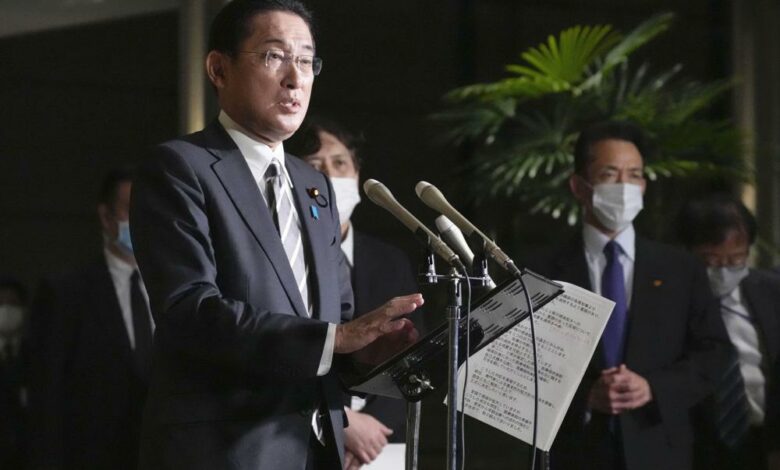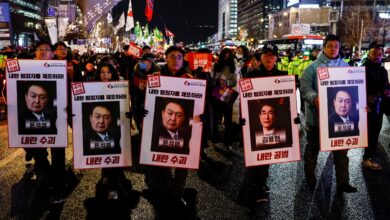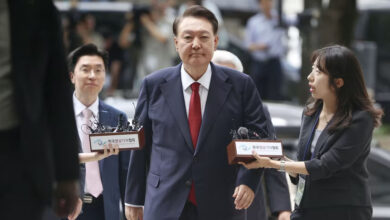
TOKYO (AP) — Japanese Prime Minister Fumio Kishida said Sunday that Japan and the U.S. have reached “a basic agreement” on banning the U.S. military from leaving its base grounds, amid growing worries about a sharp rise in coronavirus cases.
Kishida said American soldiers will stay on base “except when absolutely necessary,” which presumably means for emergencies or other security reasons. Details of the deal are still being worked out, he said on Fuji TV. The overall U.S.-Japan security alliance remains unchanged.
New daily COVID-19 cases have surged recently in what medical experts call “the sixth wave.” New cases jumped above 8,000 on Saturday, a four-month record. The spike has been blamed on the U.S. military because the case increases are most pronounced in areas near the bases. Japan asked the U.S. for cooperation in keeping its military personnel on base last week.
A spokesman for U.S. Forces in Japan was not immediately available for comment on Kishida’s latest remarks. But Maj. Thomas R. Barger has said COVID-19 trends were being closely monitored among the ranks for “health protection and operational readiness” in Japan.
Okinawa, a southwestern group of islands that houses most of the 55,000 U.S. troops in Japan, is among the three prefectures where new restrictions to curb the spread of infections kicked in Sunday.
The measures, which last through the end of the month, force restaurants to close early, at 8 p.m. or 9 p.m., and some must stop serving alcohol.
Government-backed restrictions also went into effect in Yamaguchi Prefecture, where Iwakuni base is located, and nearby Hiroshima. The Hiroshima Peace Memorial Museum, which documents the U.S. atomic bombing of Japan at the end of World War II, and Hiroshima Castle are both closed to visitors.
Other regions may order similar regulations if cases keep rising. People have been warned to stay home and avoid travel. Until recently, bars, shrines and shopping districts have been jam-packed with year-end shoppers and New Year’s holiday travelers.
Japan has never had a lockdown but it has undergone periods of varying levels of restrictions, including school closures and event cancellations.
About 80% of the Japanese population have received the second vaccine shot. Boosters have barely started, with fewer than 1% receiving them, despite repeated promises by the government to speed up their rollout. Japan has set up stringent border controls, barring most incoming travel except for returning residents and citizens.
Japan has reported about 18,300 COVID-19-related deaths so far. On recent days, there have been just one or two deaths, and on some days, zero.
___
Yuri Kageyama is on Twitter https://twitter.com/yurikageyama




